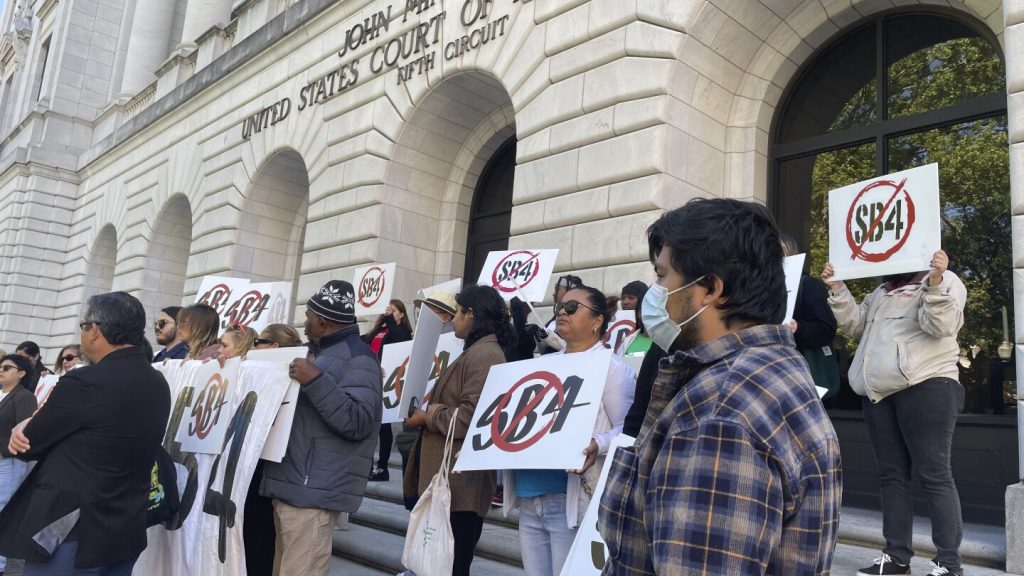In an hour-long hearing in New Orleans, a panel of federal judges heard arguments regarding Texas’ controversial law that allows law enforcement officers to arrest migrants suspected of entering the country illegally. The law, known as SB4, has faced criticism from opponents who argue that it infringes on the federal government’s authority over immigration enforcement. Texas Solicitor General Aaron Nielson defended the law, stating that the state attempted to develop a statute that aligns with Supreme Court precedent. However, he also acknowledged that the court will ultimately decide if Texas has gone too far with the law.
The Justice Department argued during the hearing that Texas was trying to undermine federal authority over immigration enforcement, while Texas insisted it would cooperate with the federal government. The law allows any Texas law enforcement officer to arrest individuals suspected of illegal entry, who could then either agree to leave the country or face misdemeanor charges. Migrants who refuse to leave could face more serious felony charges. When asked about the enforcement of judges’ orders for migrants to leave the country, Nielson explained that they would be turned over to federal officials at ports of entry, causing confusion about the difference between this process and border enforcement.
The panel of judges, including Chief Judge Priscilla Richman and Judge Andrew Oldham, scrutinized the provisions of the law to determine if any are preempted by federal mandates. Richman, who previously halted the law temporarily, cited a 2012 Supreme Court decision that struck down parts of a strict Arizona immigration law, including arrest power. Opponents of the Texas law have compared it to the Arizona law, calling it the most dramatic attempt by a state to police immigration. In a 2-1 decision last month, the panel halted the enforcement of the Texas law, overturning a previous Supreme Court decision that had allowed it to take effect.
Texas Governor Greg Abbott and other Republicans who support the law argue that it is necessary due to the Biden administration’s perceived inaction on illegal border crossings. However, Justice Department officials have raised concerns about the potential chaos the law could create in immigration enforcement and its impact on foreign relations. The panel’s decision to halt the law last month came shortly after the Supreme Court cleared the way for its enforcement but did not rule on its merits, sending the case back to the appeals court for further proceedings. The fate of the Texas law remains uncertain as the court deliberates on whether it violates federal immigration laws and oversteps state authority.


